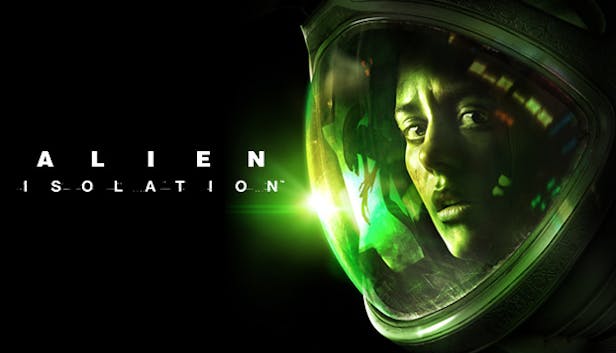It’s been a weird few months in the real world. Like many other gamers, it sometimes helps me
leave it all behind by venturing into the fantasy world. Most recently, I got the inclining to play
Skyrim. But not just any Skyrim… Skyrim
VR. Oh yeah, I wanted to feel the dragon
fire…
I finally updated my graphics card, and after what must have
been about 4 hours of me screwing with HDMI ports, my Drives, Oculus customer
service… and then about 20 minutes of my wife solving all the problems
instantly… I was able to immerse myself into Tamriel’s northern most region.
Now, as I’ve mentioned before I have NEVER beaten Skyrim’s
story. I get lost in all the side quests
and plunging into caves and the littlest nooks and cranies. Then a new patch for WoW comes out and I’m
pretty much done. I’d like to think that
a VR setup, with a new graphics card, is finally the play through I’ll be the
game in.
I’d like to believe my character is the best suited for it
to. While melee combat feels a bit
clunky and unreal, archery is AMAZING. It
is, if anything, more realistic and more satisfying. I decided that I wanted to go for a more
Archer/Soldier vibe than a sneaker/assassin vibe, mostly because Skyrim Vr
requires you to actually crouch in order to go into sneak mode. It can get a little hard on the legs to just
stay in a squatting position through a whole dungeon.
Naturally, this made me think about which side I would pick
in Skyrim’s most noticeable side-quest, the Civil War. Typically, I’m a rebel
through and through, Browncoats and Rebel Alliance all the way. Something about the rules of Fantasy seem to
dictate that rebelling is always the good side.
Perhaps it’s because rebellion is just a natural fit for narrative conflict. I made this decision early on. Some may remember that on the road from
Riverwood to Whiterun, you come across a pack of Imperial Guards escorting a
Stormcloak prisoner. Without much
thought, I killed the guards and freed the prisoner and went about my way. Next stop, Windhelm to start the Dark
Brotherhood quest and probably join up with the army.
When I walked through the gates I came to a situation that
basically came the real work crashing back to me. Some might recall that when first walking
into the city you come across a scripted event where two Nords men are yelling
at a Dark Elf woman, claiming that her “kind” shouldn’t be allowed in
Skyrim. It reminded me that this kind of
behavior is present throughout the rest of the Stormcloak storyline (which I
have finished).
Basically, the Stormcloaks hate the Imperials. And for some pretty legit reasons. For one, the Imperials don’t allow Nords to
worship one of their Gods (Talos). For
another, the Imperials are basically just patsies for a group of Elves. This seems to be a perpetual reminder to the
Nords of a huge failure in Nordic history.
Also, interact with any of the Imperials and they just kinda suck. There is a dude in Whiterun I almost always
kill. His voice line is “Have you been
to the cloud district, oh look at you, of course you haven’t”. He just stinks of “eliteness”, and I hate
him.
On the flipside, the Stormcloaks all seem like noble
patriots who are fighting the good fight against these elite fatcats who are
taking this country in the wrong direction. Sure, this victory is only for the Nords and
the Nordic way of life, but ultimately they aren’t the bad guys… right? Sound familiar?
Bethesda games have always had an element of moral relativism
in them. Fallout 3 had the moral ranking
system, but that was ultimately done away with in Fallout 4 where you could just
make decisions at any moment. This fixed
a lot of issues where the moral characterization didn’t quite fit the context. Like if I steal from someone who seems like a
bad guy, why do I lose Karma? Bethesda
games ultimately evolved, starting with Skyrim, to do away with this
system. Stealing just became a law that
was enforced regardless of ethics, and the main factions in the game
(Brotherhood v. Institute in Fallout 4, Imperials v. Stormcloaks in Skyrim)
were just a matter of perspective. To
ease that transition, Bethesda clearly made positive and negative qualities to
both. This ultimately made a more
interesting and emersive experience in my mind.
Especially in Fallout 4, where I constantly
ask myself if I’m on the right side.
In Skyrim though, I think I came to my set conclusion. The Stormcloaks are basically the
alt-right. A group of racist xenophobes
who justify their actions with their perception that returning the country to
be governed by their own ideals, regardless of the changes that have been
brought by previous administrations, is the greater good. They see their enemies as betraying the ideals of a nation that hasn't existed in quite some time who are elitists or negatively influenced by foreigners.
So naturally, I shot the racist Nord in the face and spent
the next 20 minutes of what was supposed to be an enjoyable night running around
Windhelm to escape the guards who were coming to arrest me. The words “I’d rather die than go to prison”
never seemed so fitting.
Post Script: There is actually a huge amount of online discussion and videos around the topic of whether or not Stormcloaks are racist (as well as some pretty hilarious fan-made propaganda). Please leave your comments below if you have any thoughts.



